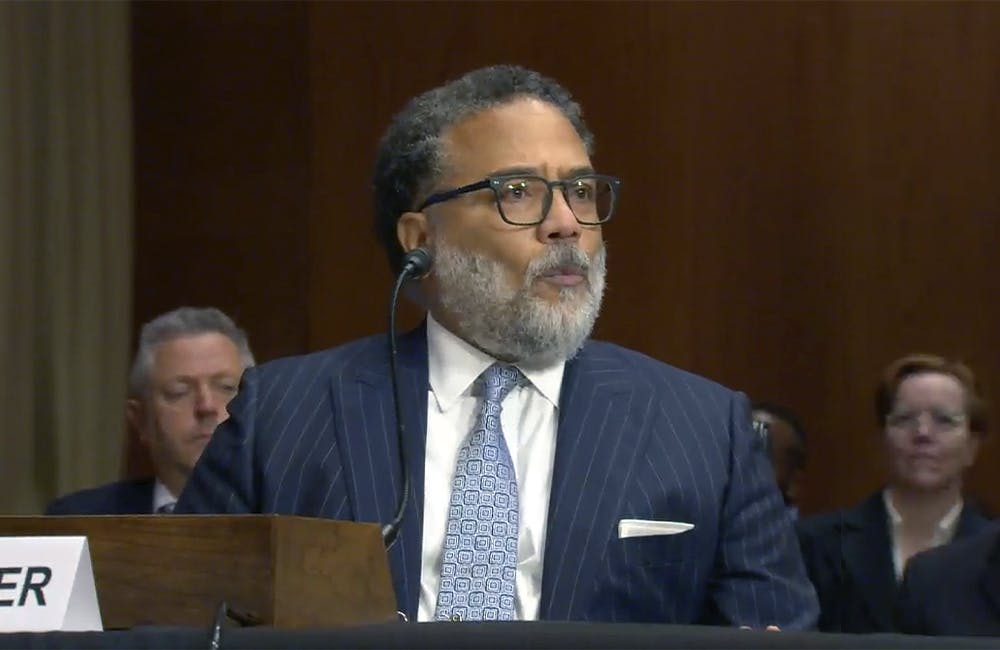Navigating the Regulatory Road to COVID-19 Booster Shots
Data management and digital tools are driving FDA’s efforts to respond to the next wave of COVID-19 demands.

The Food and Drug Administration has been key to the national pandemic response in regard to approvals of vaccines and other therapies for COVID-19 and now emerging variants. The agency has developed new tools and data workflows to manage its shifting priorities as it continues its work regulating these treatments.
Notable in the agency’s response has been its series of emergency use authorizations granted to vaccine manufacturers on an accelerated timeline in an effort to get as many people vaccinated as possible. That effort culminated in the full and final approval of one of those vaccines this August.
Now it’s in the process of evaluating the safety and effectiveness of a third “booster” dose of both the Pfizer and Moderna mRNA vaccines so that a Centers for Disease Control and Prevention (CDC) committee can issue booster dose recommendations. All this in an effort to meet a Sept. 20 target date of public health officials primed and ready to offer the boosters to the public.
But getting there is no easy feat, especially with this magnitude of a health crisis that ranks closely among the deadliest pandemics in world history.
Part of FDA’s effort comprises sorting through data from clinical trials to analyze the drug’s risks and benefits of the vaccine. And more specifically in its Center for Drug Evaluation and Research (CDER), FDA has been working to advance its data management practices for the long haul.
“CDER intends to continue using every tool at its disposal, including its emergency authorities … to make available additional, effective therapies for the prevention or treatment of COVID-19,” an FDA spokesperson told GovernmentCIO Media & Research.
The division is working on enhancing its knowledge and workflow management, which accounts for improvements in both its tech posture and workforce capabilities.
“These efforts focus on allowing us to fully leverage our past experience as we deal with future regulatory issues, but also to allow our staff to focus their time and effort on the key decisions, by improving the efficiency — and IT support — for many of our processes,” the spokesperson said.
One of these efforts included creating a secure online voluntary survey platform to monitor critical care drugs at the point of care, providing early warnings about drugs vulnerable to supply disruptions.
In addition, CDER’s NextGen Portal — a digital online system FDA calls “your direct line to FDA” — allows industry to submit emergency use authorization applications in a streamlined manner.
As CDER gains additional insights from pandemic-related data, the center is collaborating with other agencies to share information about the evolving virus and expedite treatment options.
“CDER is closely monitoring the circulating viral variants of SARS-CoV-2 that may impact the use of the monoclonal antibody therapies authorized for emergency use,” FDA said about its collaboration with agencies including the Assistant Secretary for Preparedness and Response (ASPR) and CDC. “These groups meet regularly to share information and devise strategy as part of the whole-of-government response to the COVID-19 public health emergency.”
FDA’s Vaccines and Related Biological Products Advisory Committee will hold a virtual meeting Sept. 17 to discuss the boosters for the Pfizer-BioNTech vaccine, the first vaccine to receive emergency use authorization and eventually full approval from the FDA.
“The process for authorizing or approving the use of a booster dose of a COVID-19 vaccine involves each vaccine manufacturer submitting data pertaining to safety and effectiveness to the agency to support this use,” Peter Marks, director of FDA’s Center for Biologics Evaluation and Research, said in a FDA briefing. “The FDA is evaluating data submitted by Pfizer-BioNTech in a supplemental Biologics License Application for its COVID-19 vaccine and will discuss it with the agency’s advisory committee to inform our decision-making.
This is a carousel with manually rotating slides. Use Next and Previous buttons to navigate or jump to a slide with the slide dots
-

IRS Tax Filing Pilot Part of Digital-First Customer Experience Plan
Many taxpayers increasingly expect flexible, easy and self-directed digital interactions, agency leaders said.
5m read -

Agencies Want to 'Demystify' Generative AI to See Greater Adoption
Managing concerns over generative AI capabilities requires sharing best practices and use cases for workflows.
2m read -

Defense Board Outlines Path for Integrated Digital Ecosystem
Members of DOD's board exploring digital business transformation said that standards and culture are some of the keys to technological change.
4m read -

White House Calls on Software Devs to go 'Memory Safe' for a Secure Future
A new advisory supports the National Cyber Strategy's call for shifting responsibility for cybersecurity to developers.
3m read









